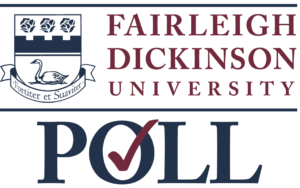Understanding the Upcoming New Jersey Gubernatorial Race: Insights from FDU Polls and Key Factors

Analyzing the Current Landscape of New Jersey’s Gubernatorial Race
The race for governor in New Jersey is shaping up to be highly competitive as the election approaches, with recent polls providing valuable insights into voter preferences and the key issues influencing their decisions. Fairleigh Dickinson University’s latest poll reveals that Democrat Mikie Sherrill holds a narrow lead over Republican Jack Ciattarelli, emphasizing the importance of both local and national factors in this crucial election.
According to the poll, Sherrill is leading with approximately 45% of likely voter support, while Ciattarelli follows closely at 37%. A significant percentage of voters remain undecided, which underscores the fluidity of voter sentiment in the final months before Election Day. Understanding what drives these preferences is essential for both campaigns and voters alike.
The Role of Local and National Issues in Voter Preferences
One of the most intriguing aspects of the recent FDU poll is its experimental approach to understanding how framing the election around either local or national issues impacts voter support. This analysis reveals that how the race is presented can influence independent voters significantly—a critical demographic in New Jersey’s political landscape.
Impact of Local Issues on Support for Candidates
When respondents were asked about local issues such as flooding, energy concerns, and NJ Transit, support for Ciattarelli among independents increased by approximately 7 percentage points. This suggests that emphasizing local concerns can sway undecided or less committed voters towards his camp. Campaigns focusing on tangible, state-specific issues may find this strategy effective in consolidating voter bases.
National Issues and Their Effect on Voter Support
Conversely, when the focus shifted to national topics such as immigration and the presidency, support for Ciattarelli among independents diminished by around 4 points. This trend indicates that nationalization of the race could potentially harm Ciattarelli’s prospects by alienating voters who are wary of national political narratives overshadowing local governance.
Furthermore, the poll highlights that the influence of national issues is mirrored in how Republicans and Democrats behave, with most partisans sticking to their preferred candidates. However, the way local and national issues are framed can tip the scales among the unaligned or undecided voters, making message strategy a crucial element for campaign success.
The Voter Demographics and Their Voting Preferences
The demographic breakdown offers additional insight into the race dynamics:
- Younger Voters (under 30): Sherrill has a significant lead among voters aged 30 and under, with 46% supporting her compared to 24% for Ciattarelli. Engaging younger voters through issues such as student affordability, job development, and social justice could be pivotal for her victory.
- Racial and Ethnic Divides: Sherrill maintains a strong lead among Black (58%) and Hispanic or Latino voters (41%), which demonstrates her strong outreach among minority communities.
- Age and Political Orientation: Among older voters aged 65 and above, the two candidates are closely tied, but Sherrill still holds a narrow edge. Her support among various political ideologies—both progressive and moderate—further cements her broad appeal.
Effect of Presidential Approval and Broader Political Context
The poll also sheds light on how presidential approval ratings influence state races. Voters who approve of President Trump are more likely to support Ciattarelli (81%), indicating that national political sentiments significantly impact local elections.
Interestingly, even among those disapproving of Trump, Sherrill garners substantial support—77% in this group—highlighting her ability to appeal beyond the Trump base. This duality emphasizes the importance of messaging that resonates with various voter segments, especially in an environment where national politics permeate state campaigns.
Strategic Takeaways for Campaigns
- Focus on Local Issues: Campaigns should highlight state-specific concerns that matter most to voters, such as flooding control, transportation infrastructure, and energy policies. These issues can sway independents and undecided voters, as the poll suggests.
- Manage National Narrative Carefully: While national issues may energize partisans, overemphasizing them risks alienating moderate and independent voters. Carefully framing messages around local benefits without becoming entangled in national debates can be advantageous.
- Target Demographic Groups: Engaging young voters and minority communities is vital, given Sherrill’s strength in these areas. Tailored outreach strategies that address their specific concerns can create a more binding voter coalition.
- Monitor and Adapt to Poll Trends: Regular polling, like the FDU study, can inform strategy adjustments, ensuring campaigns remain responsive to changing voter attitudes and regional sentiments.
Why This Election Matters and How Voters Can Prepare
The outcome of New Jersey’s gubernatorial race will influence not only state policies but also the broader political climate ahead of national elections. Voters are encouraged to stay informed on both local issues that directly impact their daily lives and the national context that shapes political narratives.
Whether you lean toward Mikie Sherrill or Jack Ciattarelli, understanding the factors at play can help you make an informed decision. Engage with upcoming debates, review candidate platforms, and participate in community discussions to determine which candidate aligns best with your priorities.
Additional Resources and Next Steps
For those interested in learning more about the candidates, upcoming debates, or how local policies could affect your community, consider exploring resources provided by Fairleigh Dickinson University or your local election board. Staying active and informed is essential for exercising your democratic right effectively.
If you want to stay updated on the latest political analyses and polling data, subscribe to newsletters or attend community forums. Your active participation can shape the direction of New Jersey’s future governance.
To learn about other influential election strategies, or to explore educational opportunities that prepare future voters and leaders, visit Fairleigh Dickinson University’s academic programs and initiatives.
Interested in engaging further? Explore the latest updates from FDU and participate in informed discussions. Your voice and voice of your community are crucial in determining the path forward.

